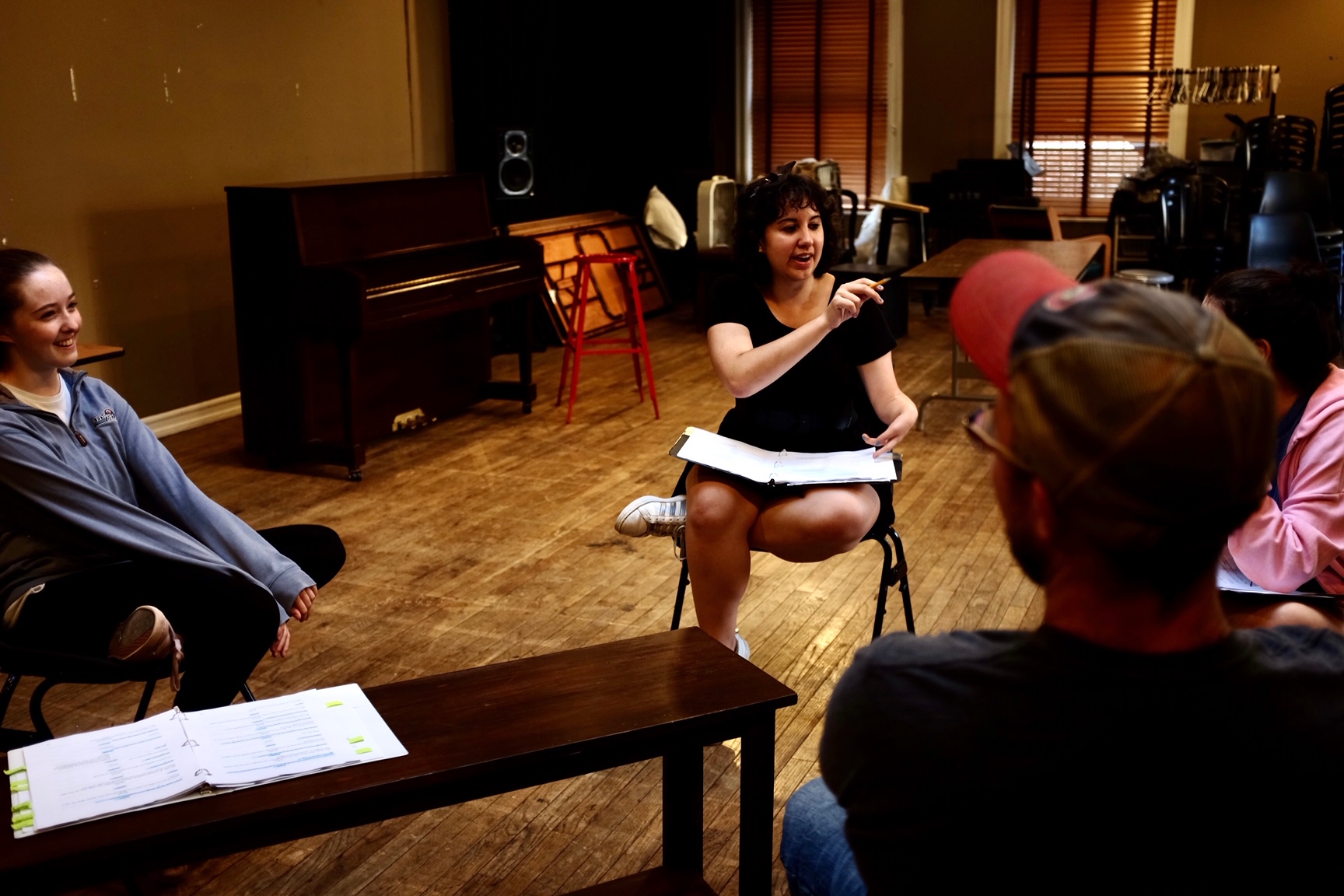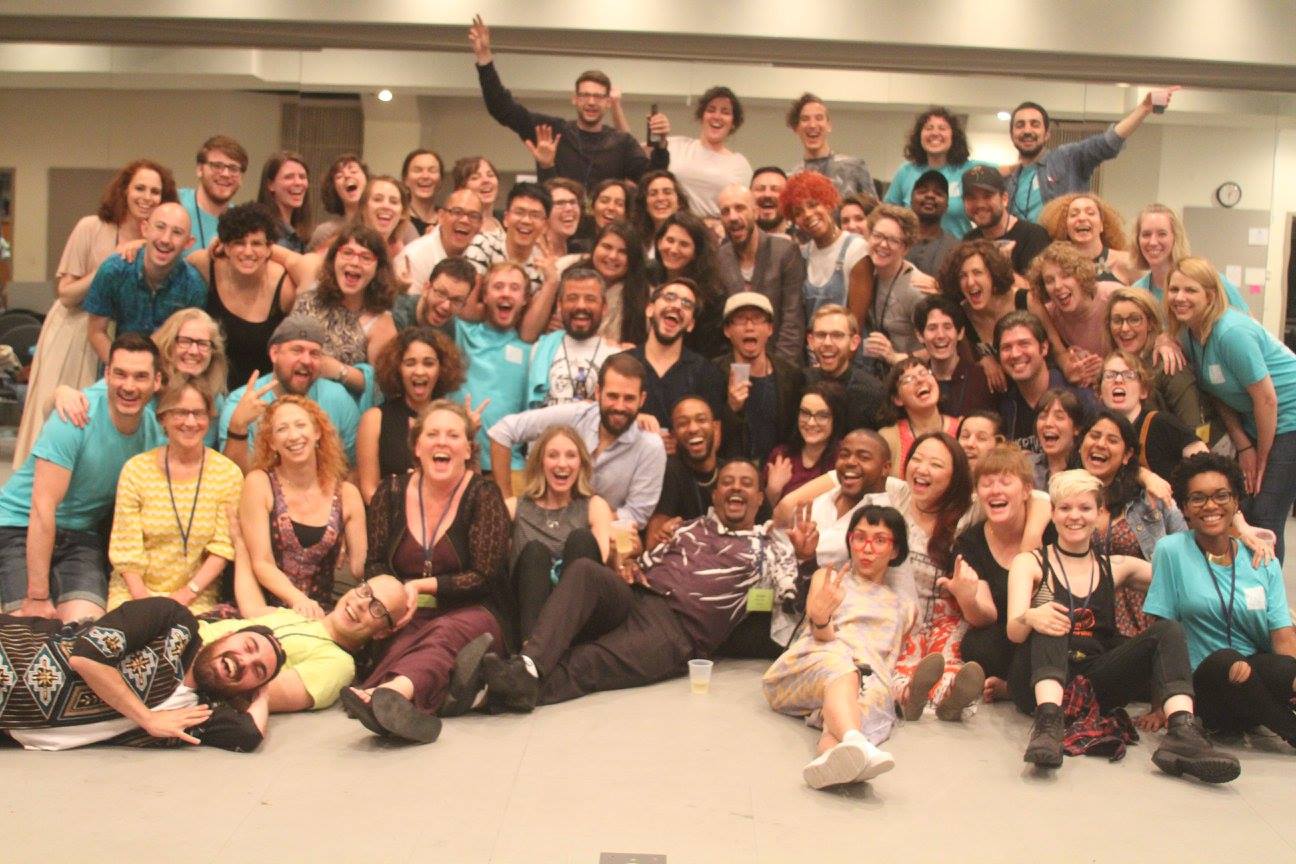We chatted to theatre maker Kerry Candeloro about the battle for accessibility off and on Broadway, how she came to work as a voice and dialect coach, and her work at Lincoln Centre Theater, New York Theater Workshop, and Moulin Rouge! The Musical.
Ever heard something complicated explained in a really simple way? It’s memorable, right?
“Education people talk a lot about the difference between equality and equity,” Chana Joffe-Walt says in a new five-part podcast series produced by Serial (yes, that Serial) and the New York Times. “Equality means everyone gets the same thing. Equity means everyone gets what they need.”
I was folding laundry when I heard that. Podcasts, I’ve found, are the only reason I get any housework done. It was a rainy Sunday, around a week after I’d caught up with my friend Kerry Candeloro. We’d talked about the differences in our experiences of the pandemic (herself in her hometown, Philadelphia, and myself in London). We re-traced some of the steps she’d taken since we’d first crossed paths (at a theatre in Highgate, North London), and how she eventually found her way to her current job at Moulin Rouge! The Musical. And we’d talked about her perspective on ableism and lack of physical accessibility in New York theatres, as a Disabled artist.
Hearing Chana’s words, I thought back on our conversation. Equity means everyone gets what they need.
Kerry’s lived experience of disability and chronic illness intersects with live performance in a bunch of different ways, but most obviously in the public domain– the domain where artists and audience members navigate physical access to, and mobility within, a huge variety of spaces. In her years working as an off-Broadway House Manager, as well as a freelance voice and dialect coach, she’s witnessed countless instances of theatres failing individuals in very public ways; from an audience member being unable to access a disabled bathroom because the doorway wasn’t wide enough to accommodate a wheelchair, to seeing “a well-known Disabled actor be carried up and down the stairs of a theatre where they were headlining because there was no accessible dressing room” (both stories from Kerry’s Instagram, where she’s collated some of these examples).
Kerry leading a coaching session
“The real privilege isn’t just being able-bodied”, she says, in response to those experiences, “it is the assumption that you automatically have access to any space you wish to physically enter. It is assuming that you can get into/move around any building independently and without ‘being a burden’.”
Beyond the issue of literal access, Kerry also draws attention to the place of disabled people within cultural discourse– from Tik Tok, to the Tony’s. While high-profile productions such as Deaf West’s Broadway revival of Spring Awakening, and the more recent Public Theatre production of Teenage Dick (which crossed the Atlantic at the end of 2019, with a run at the Donmar Warehouse) go against the grain, big-budget productions continue to overlook disabled actors when portraying their own experiences (consider the casting of disabled characters in shows such as The Curious Incident of the Dog in the Night-Time, or even last year’s Tony-winner The Ferryman). Pop culture depictions of disability tend to iconise and de-humanise people, isolating them within ‘inspiration porn’ discourse– most recently seen rearing its ugly head in the discussion around the revelation of Chadwick Boseman’s cancer diagnosis (for a great explainer on ‘inspiration porn’, check out Stella Young’s seminal Ted Talk on the topic).
If there’s any reason for hope, for optimism about a more equitable future for disabled and chronically ill people within theatre, it lives in Kerry’s insistence on communication and action. As Kerry mentions, recent movements like the Black Theatre Coalition and We See You White American Theater (who recently published their 31-page list of demands to organisations regarding increased representation and inclusivity) underline this notion— the untapped potential for collective power when individuals all speak with one voice.
That voice is saying ‘this is not good enough’. That voice comes out in hashtags, and scratch nights, and zoom calls; in awards ceremony speeches, in full-company meetings, in Front of House bars. That voice insists that artists are not commodities, and audience members are not buyers. That voice is refusing to accept symbolic gestures, or tokenism, from any so-called ‘gatekeepers’ of the performing arts.
That voice is sounding remarkably like Kerry’s.
Her first year working on the Director’s Lab programme at Lincoln Centre Theater
Kerry is a graduate of NYU’s Gallatin School of Individualised Study, where she studied speech pathology, theatre, and sociolinguistics– developing the concentration “Vocal Transformations: Speech as Identity in Theatre and Society”. Throughout her degree, she produced shows and workshops with Gallatin Theatre Troupe, as well as helping to develop original work at Manhattan Repertory Theatre, at the New York International Fringe Festival, and at Dixon Place. She worked as the Digital Assistant for Academy Award winning costume designer Ann Roth on the film The Post (directed by Steven Spielberg) and on the Broadway production of The Prom, as well as the recent revivals of Carousel, Three Tall Women, and The Iceman Cometh. At Lincoln Centre Theater, she works alongside Dramaturg Anne Cattaneo, helping to run the Directors Lab, a developmental program that nurtures stage directors from around the country and around the world. Alongside this, she continues to work as a freelance voice and dialect coach, across the New York theatre scene. And she’s also worked extremely hard as one of the head House Managers at the Off-Broadway powerhouse that is New York Theatre Workshop, and, before lockdown went into effect, as the House Seat and Guest Services Coordinator for Moulin Rouge! The Musical at the Al Hirschfeld Theatre on Broadway. She is an electric force in every room, and a wonderfully articulate advocate for disability rights– particularly within a performing arts context. She’s arguably the most widely-read person I know when it comes to play texts, and her romcom reviews are the highlight of my Instagram feed.
Check out Kerry’s Instagram (@kerry_can) for more of her insightful thoughts about theatre and disability, for her knock-out Rom Com reviews— and for her recent take on Midnight Sun (she read it so you don’t have to).
Kerry’s other recommendations:
- the Netflix documentary Crip Camp (2020), featuring the phenomenal Judy Heumann
- the activist and writer Imani Barbarin (and her website Crutches and Spice)
- to caption your videos!




Recent Comments